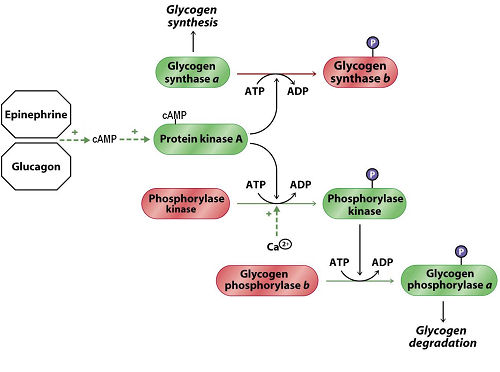Control of Glycogen Metabolism:
The main factor which controls glycogen metabolism in the liver is the concentration of phorphorylase alpha. Certainly, this enzyme catalyzes the limiting step of glycogen breakdown and through controlling the activity of synthetase phosphatase, also regulates glycogen synthesis. The configuration of phosphorylase alpha is stimulated through cAMP, through glycogen and presumably also through some still ill-defined ionic changes. The ininactivation of phosphorylase is really stimulated through glucose and inhibited via glycogen and AMP.

Glycogen synthesis is proportional to the concentration of synthetase alpha that in general fed animals is created only when most of the phosphorylase is in the beta form. An inactivation of glycogen synthetase is stimulated through cAMP and an elevated concentration of that puts a double lock on glycogen synthetase through activating phosphorylase alpha (and thereby preventing synthetase activation) and through inactivating glycogen synthetase. The result of cAMP, 5'-AMP, glucose and glycogen can currently be explained in molecular terms. The major missing link is in the ionic effect whose elucidation might lead to the understanding of the mode of action of insulin.